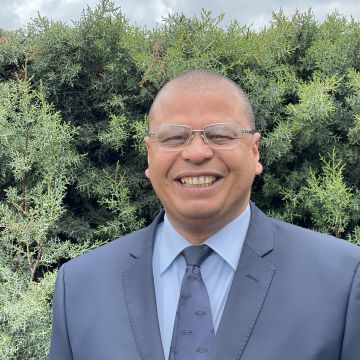Luis fell ill shortly after he was baptized and enrolled as a theology student at Venezuelan Adventist University.
At first, he thought it was the flu. But the symptoms worsened, and he struggled to breathe. Physicians suggested that he might be allergic to the pollen from the orange trees that blossomed around the university. He received many injections, but his lungs still wouldn’t allow him to breathe. Physicians advised him to quit his studies and return home, but he didn’t want to leave. He continued to get tested.
Then a medical test showed that he was infected with HIV. It was a time when people were afraid of HIV in Venezuela. Many thought that they might catch the virus through touch. Luis was asked to leave the seminary.
Luis had no choice but to go home. At home, he underwent additional medical checks. The results were always the same: HIV. Luis couldn’t understand why. Hadn’t he given his heart to God? Hadn’t he been studying to become a pastor? He was very sad.
A church elder noticed his downcast countenance. “You should be joyful,” the elder said. “If you aren’t joyful, it’s because you haven’t met Jesus.”
The observation struck deep in Luis’s heart. He went to his bedroom and knelt down. He prayed to God for forgiveness. He acknowledged that he had not glorified God with his body in his former life and was at fault for contracting HIV. “I don’t want You to heal me,” he prayed. “I just want to preach for the rest of the days that You grant me.”
At that moment, something unusual happened. Luis felt as if his heart started burning, and the heat spread over his whole body. He blacked out.
When Luis got tested once again, the results came back negative. Surprised, he asked to be tested again—and again. Always he was HIV-free.
“Why are you asking for more tests if the results are negative?” the physician asked. “You don’t need to be tested anymore.”
Making good on his promise to God, Luis dedicated his life to preaching and bringing people to Jesus. He got married and completed his theology studies at the university in 2006.
“I haven’t stopped preaching the gospel ever since,” he said.
Today, Luis and his family are missionaries in Spain.
Thank you for your Sabbath School mission offering that helps support missionaries around the world. Read next week about how a hostage crisis caused Luis to leave Venezuela.

